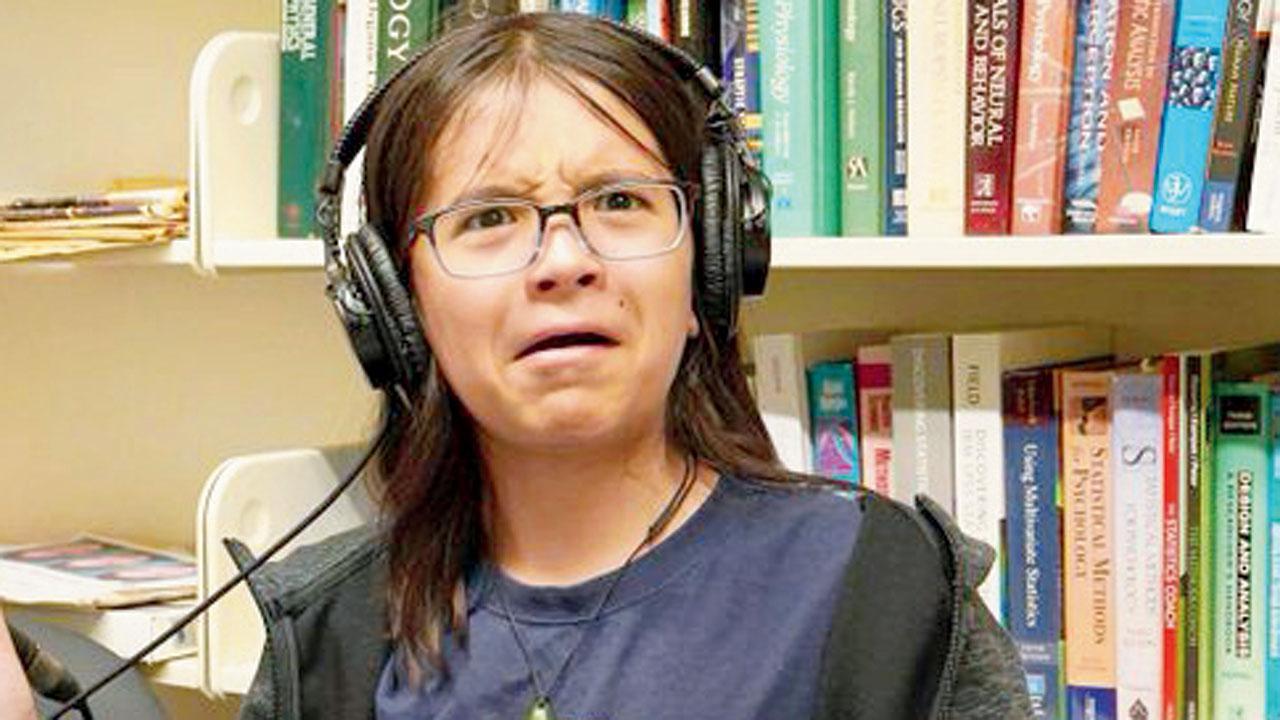A podcast by a 15-year-old echoes a mixed queries that throng minds of many immature people

Tai Poole. Pic Credit/CBC Twitter
With tons of questions that lay in many childrens’ minds, 15-year-old Canada-based Tai Poole is no different, solely for a form of queries that bother his curiosity. The small man with large questions began his tour when he was 11 with his podcast, Tai Asks Why. On a goal to expose a mysteries of a Universe, his queries operation from food, money, and a Internet, to formidable ones such as a future, environment, and mental health. Inviting people from opposite walks of life, his podcasts embody an equal mix of earnest and fun.
In one of these episodes, Poole delves into critical environmental issues like how to repair recycling. He hosts a 30-minute event by vocalization to Calvin Lakhan, a investigate scientist during York University; Olivia Kwok, administrator of Waste and Diversion Programs with a city of St Albert; Nate Maynard, a Taiwan-based sustainability consultant and environmental researcher; and Andrea McKenzie, 0 rubbish plan operative for a city of Vancouver. They plead several topics, including a difficulty that emerges from what can and can't be recycled; who is obliged for recycling; hurdles faced during recycling certain items; and a judgment of revoke and reuse. The podcast references moving village recycling initiatives that can go a prolonged approach towards a larger common good for a cleaner planet.
The podcast throws light on educating consumers to minimise a apportion of rubbish that is generated and to boost opportunities for reuse. With in-depth discussions, we like how a teen steers episodes with enchanting questions. Now, if we get extraordinary about because we giggle or what income will demeanour like in a future, we know where to find a answers.
Log on to: CBC Radio

<!–
$(“.read-more-my”).click(function() {
$(this).parent().siblings(“.more-text”).css(‘display’, ‘block’);
$(‘.article-first-para’).removeAttr(“style”);
$(this).parent().remove();
var height12=$(‘#showfullarticle’).offset().top();
$(window).scrollTop(height12);
(function(i, s, o, g, r, a, m) {
i[‘GoogleAnalyticsObject’]=r;
i[r]=i[r]||function() {
(i[r].q=i[r].q||[]).push(arguments)
}
, i[r].l=1*new Date();
a=s.createElement(o), m=s.getElementsByTagName(o)[0];
a.async=1;
a.src=g;
m.parentNode.insertBefore(a, m)
}
)(window, document, ‘script’, ‘//www.google-analytics.com/analytics.js’, ‘ga’);
//ga(‘create’, ‘UA-2326030-39′, ‘auto’);
let displayMode = ‘browser';
let dimensionValue=”browser”;
const mqStandAlone = ‘(display-mode: standalone)';
if (navigator.standalone || window.matchMedia(mqStandAlone).matches) {
if(displayMode==’standalone’){
ga(‘create’, ‘UA-213337986-1′, ‘auto’);//pwa
}else{
ga(‘create’, ‘UA-2326030-39′, ‘auto’);//live
}
}
ga(‘send’, ‘user’);
ga(‘send’, {
‘hitType':’event’, ‘eventCategory':’Showfullstory’, ‘eventAction':’user’, ‘eventLabel':’article’, ‘hitCallback':function() {}
, ‘hitCallbackFail':function() {}
});
});
–>
